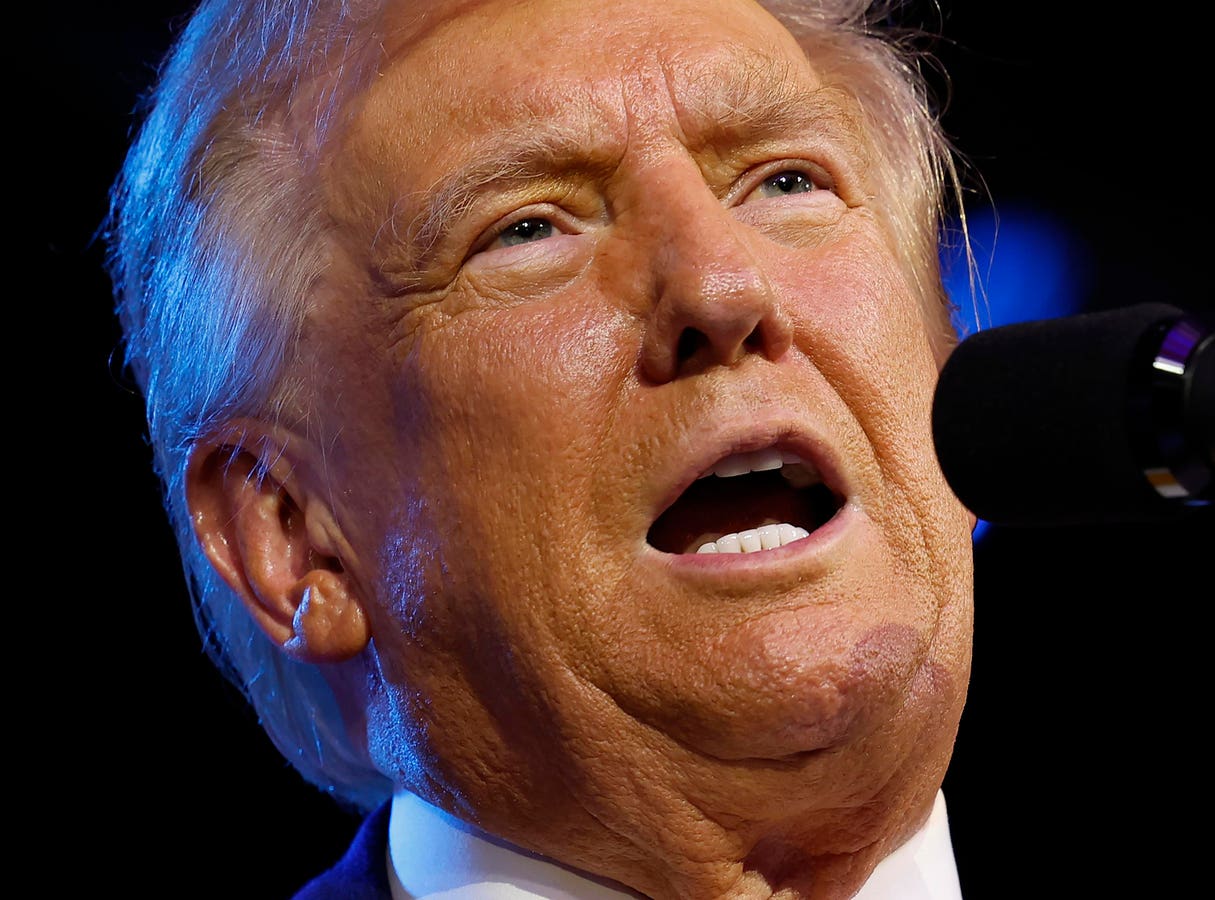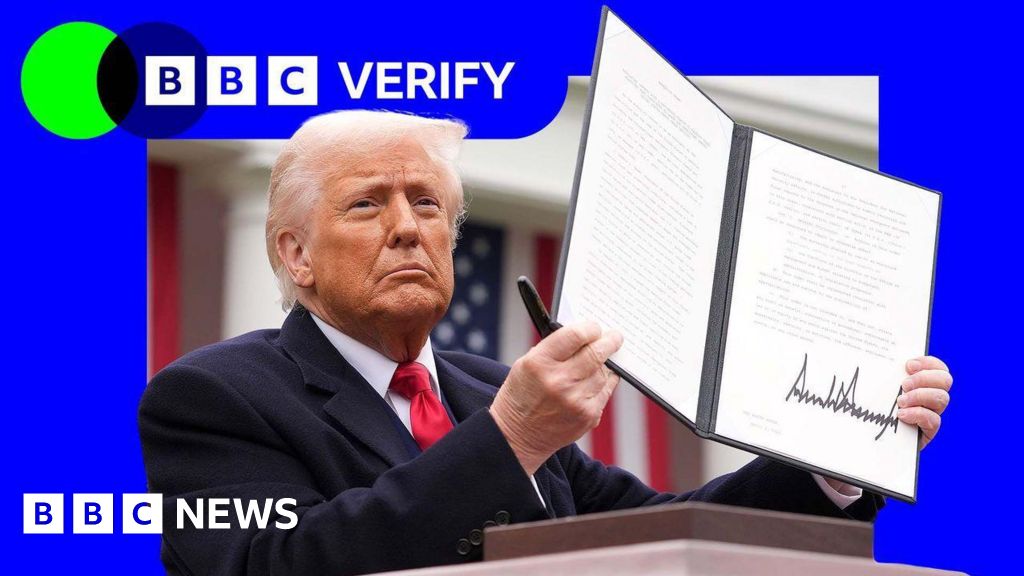Topline
Republicans’ final-hour push to change the way Nebraska allocates electoral votes appears to have died, preventing a rules change that would increase former President Donald Trump’s chances of winning the 2024 race, as a key lawmaker withholds his support.
Former President Donald Trump speaks at the Israeli American Council National Summit at the … [+] Washington Hilton on September 19, 2024 in Washington, DC. (Photo by Kevin Dietsch/Getty Images)
Key Facts
Nebraska awards two electoral votes to the winner of the state at large and awards the remaining three votes to the winner of the three House districts—one of which, covering the state’s largest city, Omaha, is an outlier in the deep-red state and typically votes Democratic.
Republicans want to change the system to a winner-takes-all approach—which all states except Maine and Nebraska use—to increase the chances that Trump takes all five electoral votes.
The change could lead to a scenario where Trump and Vice President Kamala Harris, should she carry the “blue wall” states of Michigan, Pennsylvania and Wisconsin, but no other swing states, tie each other with 269 electoral votes, leaving it to the GOP-controlled House, where Trump has the clear advantage, to choose the winner.
Nebraska Sen. Mike McDonnell, a former Democrat from Omaha who recently changed his party affiliation to Republican, reiterated on Monday he wouldn’t back the change, expressing concerns that it would blunt Nebraska’s national significance in the election process and that it was being made too close to Election Day.
McDonnell’s announcement effectively killed the GOP’s hopes to change the law as Republican Gov. Jim Pillen—who has long said he backs the proposal—said he would not call a special legislative session to implement the change without the support of all 33 Republican senators.
McDonnell has never supported the change, but said last week he was considering arguments for why modifications should be made amid the recently renewed effort to change the law, The New York Times reported, citing his spokesperson, Barry Rubin.
Republicans re-upped their calls to for change last week when Nebraska’s five Republican lawmakers in Congress sent a letter to Pillen and State Legislature Speaker Sen. John Arch, both Republicans, urging them to switch to the winner-takes-all method.
Sen. Lindsey Graham, R-S.C., also met with Pillen and Republican state lawmakers in Nebraska on Wednesday to make the case on Trump’s behalf, multiple outlets reported.
What To Watch For
McDonnell suggested Monday the legislature put a constitutional amendment on the ballot next year so voters can decide if the electoral vote system in the state should be changed.
Tangent
Trump in April lauded Pillen’s endorsement of the change, calling it “very smart” in a Truth Social post. Lawmakers ran out of time to make the change in April before the legislative session ended.
It’s Too Late For Maine—the Other State With Proportional Votes—to Weigh In
Maine is the only other state that doles out electoral votes on a partially proportional basis. Harris is all but certain to win the historically blue state outright, while Trump is widely expected to win one rural congressional district, meaning that Maine could even the playing field by following suit with Nebraska if it does change its law. However it’s too late for Maine to change its law now, as Maine laws don’t take effect until 90 days after passage, a date that would come after the electoral college is scheduled to meet Dec. 17. There’s some speculation that Republicans revived their push to change the law this week after they knew the deadline in Maine had passed.
Key Background
Harris narrowly leads Trump nationally, but the two are locked in a razor-thin race in almost every swing state after Harris entered the race and erased Trump’s lead over President Joe Biden. Trump won all six states, except Nevada, in the 2016 election, and Biden won all six states in 2020.











